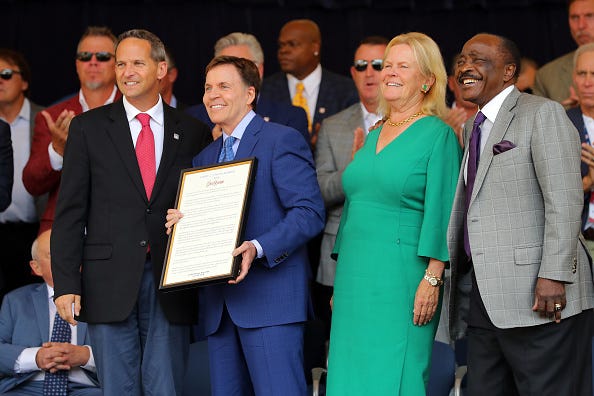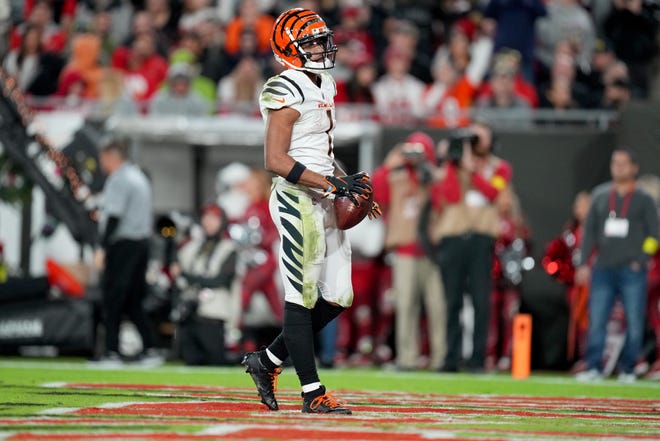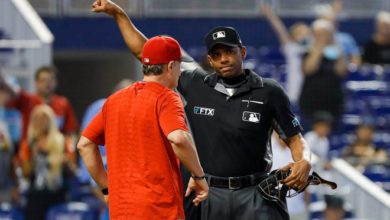
Long-time national broadcaster Bob Costas joined John Sadak and Barry Larkin in the Bally Sports Ohio broadcast booth Sunday and talked about the legacy of former Reds great Joe Morgan, honored by the team during the Cincinnati Reds' game against the Pittsburgh Pirates.

Costas and Morgan broadcasted games together for NBC, along with Bob Uecker for part of the time.
"Joe was so well respected by everyone - in the press box, in the clubhouses, in the dugouts, at the batting cage," Costas said. "And Barry, as you know, he didn't wear it on his sleeve. It spoke for itself. He never had to blow his own horn. It just all spoke for itself. ... Joe was criticized by some younger analysts for not really embracing analytics or Sabermetrics, whatever you want to call it. But all that new-age statistical stuff is very kind to Joe Morgan. People didn't know what OPS was back then - at least didn't have a name for it. But in 1976 - his second MVP season - he leads the league in on-base percentage and slugging, and therefore OPS. Now brace yourself for this, OK: That year, he hit .320 with 27 homers - which was unheard of then for a middle infielder - 111 RBIs. He walked 114 times and struck out 41. He stole 60 bases and was caught only nine times. And then for good measure, he led the league in sacrifice flies. And if you follow Joe Morgan's career, a sacrifice fly was not an accident. He did that because the game situation called for it. Those two years - maybe three - even as a teammate of Johnny Bench, Joe Morgan was the best player in baseball. Gold Glove that year, too. I mean what else could you do. He did everything else a baseball player is supposed to do."
"That's a profound statement," Larkin added. "And doing all of that on the field as well as being an ambassador for the game off the field. Just a wonderful man."
Larkin also said Morgan was the first to call and congratulate him after Larkin learned of his National Baseball Hall of Fame election.
"He called the game he saw on the field," Costas added of Morgan as a broadcaster. "Not the game he brought to the booth in his briefcase. His sense of the game was so good. Everybody says he was the smartest player they played with and against. ... His insights were all what he saw. Not something necessarily that he read. ... You might see four or five things (at a time). He saw about a dozen simultaneously."
LOVE SPORTS? [ Subscribe now for unlimited access to Cincinnati.com ]
Source link









